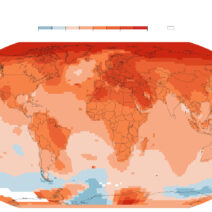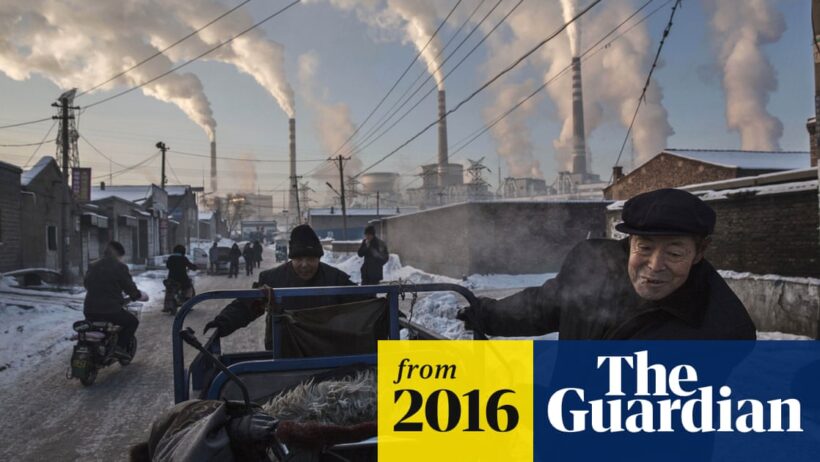Global warming is no longer a distant concern, but an immediate threat that poses substantial risks to human health. As the planet’s temperature rises, the consequences are severe and multifaceted, impacting various aspects of our lives. Understanding the hidden dangers of global warming on health is crucial for recognizing its broader implications. This exploration highlights the myriad ways climate change threatens public health and encourages us to reconsider our approach to environmental stewardship.
At its core, global warming exacerbates existing health issues and introduces new risks. One immediate concern is the increase in heatwaves and extreme weather conditions. As mean temperatures rise, the frequency and intensity of heatwaves will consequently escalate. Populations in urban areas, where heat tends to concentrate, are particularly vulnerable. Prolonged exposure to extreme heat can lead to heat-related illnesses such as heatstroke, dehydration, and exacerbations of chronic health conditions. Particularly at risk are the elderly, young children, and those with pre-existing health conditions that impair their bodies’ ability to regulate temperature.
Moreover, the indirect health impacts of global warming are equally alarming. Higher temperatures can catalyze a range of environmental shifts that lead to the proliferation of vector-borne diseases. As the habitats of mosquitoes, ticks, and other disease vectors expand due to warmer climates, diseases that were once geographically restricted are finding new areas to flourish. Malaria, dengue fever, and Zika virus are prime examples of illnesses which could become more prevalent, posing significant public health challenges in regions previously deemed safe.
Air quality also deteriorates with the rise in temperatures, stemming from wildfires, industrial pollution, and transportation emissions. Elevated temperatures can enhance the formation of ground-level ozone, a harmful air pollutant. Poor air quality is linked to numerous respiratory and cardiovascular diseases, which can lead to premature death. Studies have shown that air pollution can exacerbate asthma, bronchitis, and other pulmonary disorders. Vulnerable populations including children and the elderly may experience heightened health disparities as a result of deteriorating air quality.
Furthermore, the impact of climate change extends to waterborne diseases. Warmer temperatures can lead to algal blooms in freshwater and marine environments, which produce toxins harmful to both humans and wildlife. Contaminated water sources can result in gastrointestinal illnesses and other severe health complications. The likelihood of floods—intensified by climate change—can also disrupt sanitation systems, increasing the risk of waterborne contaminants spreading rapidly among populations. Access to clean water is essential for public health, and climate change threatens to undermine this fundamental necessity.
Food security constitutes another hidden health risk in the broader narrative of global warming. Climate change affects agricultural productivity through changing precipitation patterns, increased pest infestations, and extreme weather events. These disruptions can lead to food shortages and increased prices, ultimately causing nutritional deficiencies. Malnutrition, particularly among vulnerable groups such as infants and pregnant women, can have long-lasting detrimental effects on health. Additionally, the psychological stress associated with food insecurity underscores the profound implications that climate-related challenges pose on mental health.
In examining the hidden risks of global warming, we cannot overlook the psychological impacts. The phenomenon known as eco-anxiety is gaining traction, particularly among the youth. Awareness of climate change and its repercussions can lead to a persistent sense of dread and helplessness regarding the future. This psychological toll can manifest in conditions such as depression and anxiety, significantly affecting quality of life. Collective distress stemming from community-based environmental threats can fracture social cohesion and increase mental health service demands.
Interestingly, socio-economic factors further complicate the health repercussions of global warming. Vulnerable populations—often those who contribute the least to greenhouse gas emissions—are disproportionately affected by climate change. Low-income communities may lack resources to adapt to changes, leaving them exposed to health threats from heat, disease, and compromised nutrition. Addressing these disparities is vital for fostering resilience and coping mechanisms within impacted communities.
One cannot overlook the intertwined relationship between migration patterns and climate change. Displacement due to climate-related disasters such as hurricanes, floods, and rising sea levels can lead to health crises in affected regions. Refugees and internally displaced persons are particularly vulnerable due to inadequate access to healthcare and sanitation. Mental health concerns often arise from dislocation, exacerbated by trauma and social fragmentation. The implications of climate-induced migration stretch globally, impacting both sending and receiving communities.
Considering these multifaceted health risks, it becomes imperative to adopt a comprehensive approach toward climate action. Mitigation and adaptation strategies must be prioritized, incorporating public health initiatives as cornerstones for effective climate policy. Promoting sustainable practices, investing in clean energy, enhancing public transportation systems, and supporting mental health resources are all pivotal steps toward a healthier future.
In conclusion, the hidden risks of global warming extend far beyond temperature increases. From exacerbated heat-related health issues and the spread of vector-borne diseases to the deterioration of air and water quality, food security threats, and psychological impacts, the hazards to human health are profound and complex. Raising awareness and fostering a sense of collective responsibility is essential. Understanding these risks is crucial for engendering a sense of urgency that mobilizes individuals, communities, and governments alike towards meaningful action against climate change. Ultimately, a shift in perspective is necessary—a recognition that safeguarding our environment is intrinsically linked to safeguarding human health.







